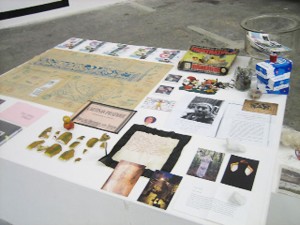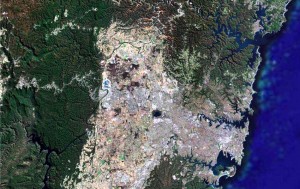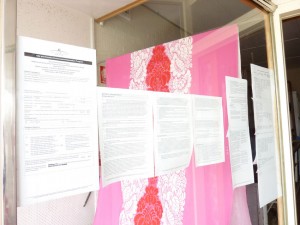 Beyond Rapa Nui: Policy and plan for Sydney’s food production Reliquaries of empires dust, Bereznitsky Gallery Berlin, Germany
Beyond Rapa Nui: Policy and plan for Sydney’s food production Reliquaries of empires dust, Bereznitsky Gallery Berlin, Germany
Project developed in collaboration with Gavin Ramsay from UWS working with 13 local government councils, Australia Council for the Arts, and over 20 other organisations including the Sydney Food Fairness Alliance. The work builds on a regional permaculture public art program involving 11 local government councils devised in 2008.
Funding Application
Please provide a short description of your proposal (maximum 150 words).
Drawing from current local and international best practice models of sustainable food production at backyard, community garden, high-profile public and small and large scale farming a combination of participatory and scientific methods will carry out an analysis of agri-food systems as a component of selecting appropriate crops and animals (including Indigenous crops) and management methods of production systems in relation to culture, commerce, physical environment, health and nutrition, and development processes. From this would develop in association with stakeholders various scales of operation (from backyard to commercial operation) and processes for implementation involving community groups in over twelve on-the-ground leadership projects.
2.6 Methodology – how will you deliver these targets?
 The methodology in this project relates to understanding and building on Indigenous knowledge and working to combine that input with knowledge from various other sources to improve the production of food. The idea of improved production of food in this project is examined in relation to five key areas namely: culture, commerce, physical environment, health and nutrition and development. These five areas form a common set of criteria against which the project and its activities will be evaluated.
The methodology in this project relates to understanding and building on Indigenous knowledge and working to combine that input with knowledge from various other sources to improve the production of food. The idea of improved production of food in this project is examined in relation to five key areas namely: culture, commerce, physical environment, health and nutrition and development. These five areas form a common set of criteria against which the project and its activities will be evaluated.
In general the project phases have the aims of:
1. Understanding relationships between the communities in Western Sydney and its local food production capacity and supply from various perspectives;
2. Examination of the potential for positive change from combining the various ways of understanding; and
3. Developing and testing various methods to improve the relationship between the communities and their food, including production and supply of that food by various means.
Firstly, this involves collection of current knowledge and synthesis of that knowledge. This will take various forms and will include for example, oral tradition and scientific knowledge. Because the knowledge will be drawn from various epistemological frameworks it will be necessary to provide mechanisms to enable it to be synthesised to increase the value for all participants. The second phase makes use of the newly developed knowledge to be applied in the development for testing of various production systems. The third phase involves evaluation of the production systems in light of their impact in line with the 5 areas outlined above. Within each phase there are elements involving Indigenous communities their knowledge and activities, researchers and their developing understanding, local farmers (including CALD farmers) and the wider community and organisations that represent that community.
In Phase 1 from an Indigenous perspective the project and its role can be divided into two areas first cultural expression, knowledge and understanding and second health and wellbeing. It is important to note that these elements are for convenience in description and are not mutually exclusive. Within the project Cultural expression and knowledge and understanding will be examined via the 10 integrated action research and art programs that will provide documentation and interpretation of Indigenous knowledge. The knowledge documented will be analysed to help find practical Indigenous knowledge relevant to sustainable agricultural production.
Other knowledge to be collected in Phase 1 relates to building an understanding of current practices in food production and future potential in the area from a spatial, cultural and commercial perspective. This will involve the development of layers within a GIS system together with collection of information from farmers in the region with an emphasis on the understanding that farmers in the region are culturally and linguistically diverse and provide an important source of information. The University of Western Sydney (UWS) will play a key role in the collection and collation of this knowledge through the Urban Research Centre in association with the Department of Primary Industries in NSW. In addition, information on various crops and livestock species currently produced and other potential crops and livestock (including Indigenous foods) will be documented and evaluated for their potential use in systems. The Darug Tribal Aboriginal Corporation and Muru Mittigar will play a key role in this activity in association with scientists from the School of Natural Sciences at UWS.
Within Phase 2 Indigenous communities, farmers, other researchers and international experts will share their knowledge and develop a combination of that knowledge to produce a new understanding through the Regional Stakeholder Strategy Forum and Community Workshops. The knowledge developed will be used to produce production systems for testing.
The production systems developed in Phase 2 will be tested and improved through their application within operational production systems in Phase 3. The production systems will take several forms that will range from applications for use in backyards to those appropriate for commercial operations. That testing will be evaluated against the various elements including culture, commerce, physical environment, health and nutrition and development processes and will use scientific, participatory and other methods relevant to the stakeholders (some of which will be developed as part of the process) in that evaluation. Assessment of potential weed or pest status of introduced crops or livestock will be undertaken. The results of evaluations will be used to improve the operation of the production systems. At the same time the operational food and fibre production systems will provide other members of the community with the opportunity to engage with the process as they will operate as demonstration examples for individuals and groups.
Garden Weekend 2011 Kandos Projects – a permaculture public art funding application blueprint to be adapted. 
